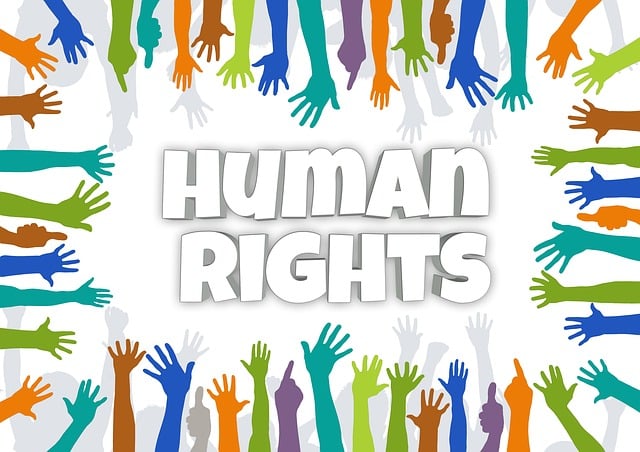Class Action Lawsuits empower individuals with shared experiences and losses to collectively sue common defendants, overcoming cost and complexity barriers. Eligibility criteria vary by jurisdiction but require common facts and legal issues. In RF Finance law, understanding these requirements is key for financial loss victims, focusing on securities fraud, consumer rights violations, or economic injustice. Plaintiffs must prove a direct connection to harm and measurable damages, aiming for uniform adjudication with expert legal guidance.
“In the dynamic realm of finance, navigating legal complexities can be a daunting task for individuals seeking justice. This article explores the world of RF (Radio Frequency) Finance Law, with a particular focus on class action lawsuits. We’ll unravel the intricacies of these collective legal endeavors, guiding you through the eligibility criteria—who can participate and what rights they hold. By understanding the process, you’re empowered to make informed decisions, ensuring access to the resources and representation needed to pursue Class Action Lawsuit Eligibility Requirements effectively.”
- Understanding Class Action Lawsuits: A Comprehensive Guide
- Eligibility Criteria: Who Can Participate in RF Finance Cases?
- Navigating Legal Processes: Your Rights and Resources
Understanding Class Action Lawsuits: A Comprehensive Guide

Class Action Lawsuits: Unraveling the Basics
A Class Action Lawsuit is a legal mechanism that allows a group of individuals, who have suffered similar losses or injuries, to join forces and sue a common defendant collectively. Unlike individual lawsuits, where each person files their own case, class actions consolidate these claims into one comprehensive lawsuit. This approach has significant advantages, particularly for consumers or individuals with smaller claims who might otherwise be deterred from legal action due to cost or complexity. By pooling resources, plaintiffs can effectively hold powerful entities accountable for wrongdoings.
To be eligible for a Class Action Lawsuit, members must share common issues of fact and law, such as being exposed to the same hazardous product or suffering similar financial losses due to deceptive practices. The criteria for eligibility vary across jurisdictions but generally focus on establishing a connection between the plaintiffs’ experiences and the defendant’s alleged misconduct. This process ensures that cases are handled efficiently and provides a voice to those affected by similar situations, fostering fairness within the legal system and encouraging accountability among businesses and organizations, especially in addressing issues impacting the philanthropic and political communities across the country, as well as general criminal defense matters.
Eligibility Criteria: Who Can Participate in RF Finance Cases?

In the realm of RF Finance law firms serving clients involved in class action lawsuits, understanding the eligibility criteria is paramount. Typically, individuals or entities who have suffered financial losses due to alleged misconduct can participate. These cases often revolve around securities fraud, consumer rights violations, or other forms of economic injustice. To be considered for a class action lawsuit, plaintiffs must meet specific eligibility requirements, such as demonstrating a direct connection to the harm caused by the defendant’s actions and suffering measurable damages.
The participation criteria extend beyond individual losses; potential class members should also be able to demonstrate their ability to contribute meaningfully to the litigation. This includes providing evidence of losses incurred and the circumstances surrounding them. Across the country, all stages of the investigative and enforcement process are crucial in determining eligibility. The ultimate goal is a complete dismissal of all charges against the defendant if the plaintiffs’ claims are validly substantiated.
Navigating Legal Processes: Your Rights and Resources

Navigating Legal Processes involves understanding your rights and resources, especially when considering a Class Action Lawsuit. These powerful legal mechanisms are designed to provide justice for individuals who have been wronged by corporate or individual entities. To be eligible for a class action lawsuit, certain criteria must be met, such as shared injuries, common questions of law or fact, and the need for uniform adjudication. This collective approach ensures that all affected parties can join forces and leverage their collective impact to hold accountable those who have violated their rights.
Throughout all stages of the investigative and enforcement process, legal professionals play a pivotal role in guiding clients through complex procedures. Whether it’s corporate or individual clients, a robust general criminal defense strategy is essential for protecting interests and ensuring fair outcomes. By harnessing the expertise of legal counsel, individuals can navigate these intricate processes with confidence, knowing their rights are protected and their voices will be heard.
RF finance law firms play a pivotal role in navigating complex legal processes, especially regarding class action lawsuits. Understanding your eligibility based on clear criteria is essential for those seeking justice. By knowing your rights and resources, individuals can confidently participate in these powerful tools for change. This comprehensive guide empowers folks to make informed decisions, ensuring they meet the Class Action Lawsuit Eligibility Requirements and connect with the right legal support.






